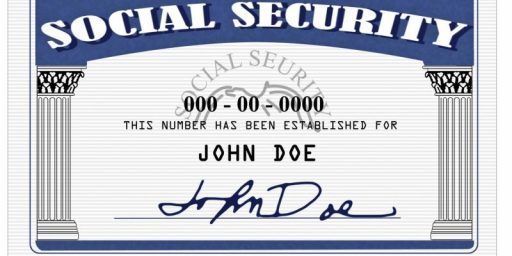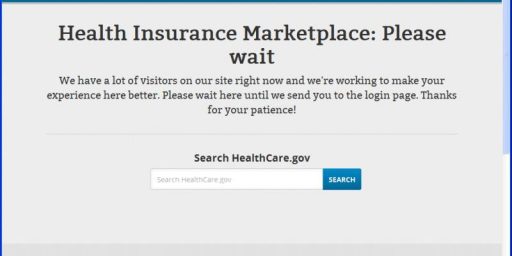Automatic Signup In 401(k)s Backed
Automatic Signup In 401(k)s Backed (WaPo, May 30, A5)
House Ways and Means Chairman Bill Thomas (R-Calif.) will include a provision in his Social Security legislation to help employers make enrollment in 401(k) plans automatic unless workers choose to opt out, according to congressional staff and knowledgeable lobbyists. The provision could have substantial impact on the nation’s savings rate, which has declined from 7.2 percent in 1992 to barely 1 percent today. Recent academic research has shown that employee participation rates soar among companies with automatic enrollment in retirement plans.
[…]
Such a deal would be controversial, one GOP lobbyist said, because converting 401(k) balances to privately managed annuities would eat into workers’ savings balances. But automatic enrollment in 401(k) plans would be popular. Employers like the idea because increasing enrollment in 401(k) plans means reducing the cost of administering them. Economists of all political stripes like it because it appears to work.
About 10 percent of companies with 401(k) plans already enroll new hires automatically, unless the employees opt out. A 2001 study by the University of Pennsylvania’s Brigitte C. Madrian and United Health Group’s Dennis F. Shea found that in one large corporation, 401(k) participation among new hires jumped to 85.9 percent from 37.4 percent when enrollment became automatic. For minorities and low-income workers, the change was even more dramatic.
Mandating automatic enrollment would easily create $20 billion in new retirement savings a year, said Peter R. Orszag, director of the Retirement Security Project, run by Georgetown University and the Brookings Institution. If Congress pushed employers to slowly increase contribution rates over time, savings would increase well in excess of $50 billion a year.
To expand automatic enrollment, Congress needs to preempt some state labor laws, which many companies interpret as preventing the practice, Orszag said. Lawmakers also need to shield companies from legal liability to protect them from workers potentially suing over investment losses.
Matthew Yglesias has been pushing this idea for a while and cites a March Brookings study, “The Automatic 401(k): A Simple Way to Strengthen Retirement Savings,” on its efficacy. (The link is to an executive summary. The full version, in PDF format, is here.)
I haven’t studied the particulars but, on cursory review, it seems like a reasonable idea. I’m a bit dubious of the role of Congress, let alone Ways in Means, in what seems like a decision for individual businesses to make. But, given that 401(k) is a provision of the tax code, the horse is already out of the barn on this one.






It’s actually NOT a good idea.
Employer 401(k) programs depend on a certain number of people NOT enrolling. If everyone was automatically enrolled, then employer matches would plummet.